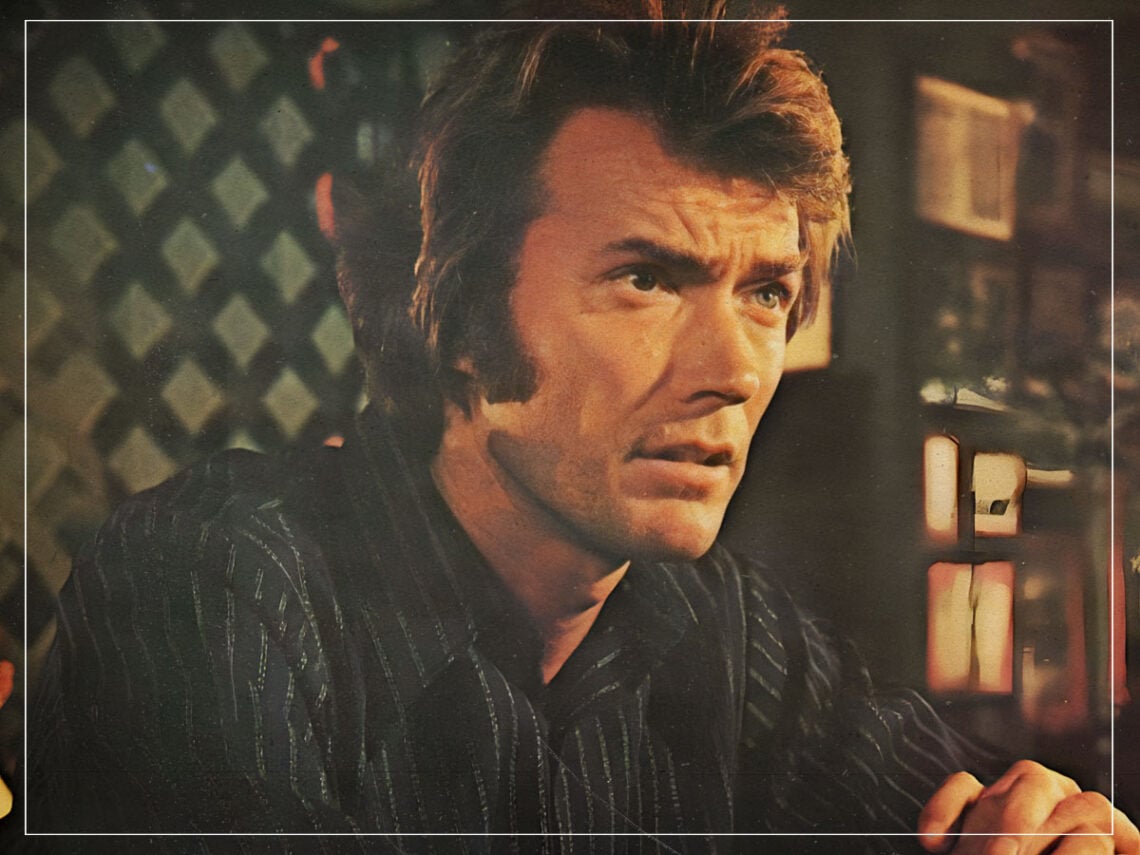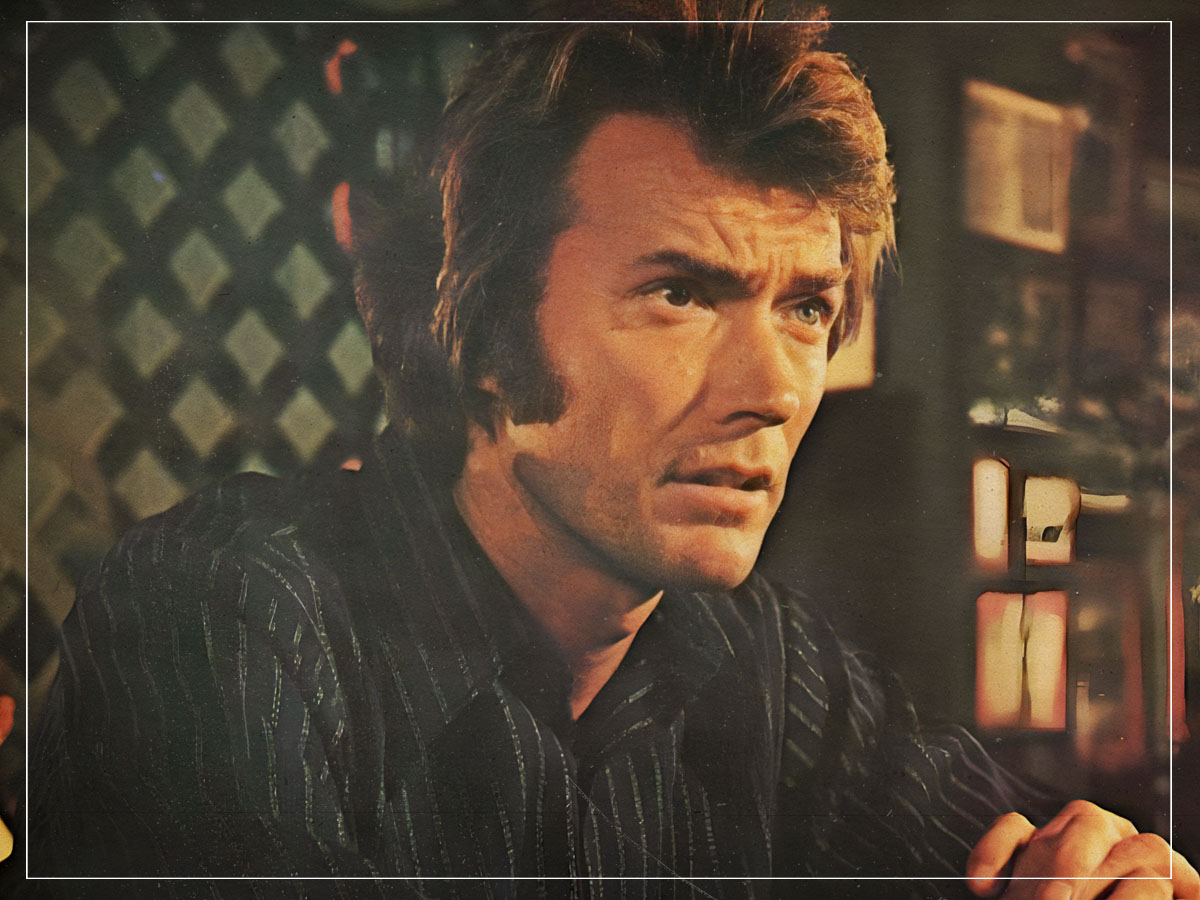
(Credits: Far Out / Universal Pictures)
Sun 28 September 2025 20:15, UK
A defining star of the silver screen, going all the way back to the mid-1950s, the name Clint Eastwood carries a lot of weight within the realm of Hollywood.
From the steely masculinity of his performance as ‘The Man With No Name’ to the archetypal action heroism of Dirty Harry, the filmography of the Californian is awash with iconic roles. So much so that it is easy to forget all the godawful projects Eastwood has been attached to in the few fleeting moments when he hasn’t been directing and acting in a litany of classics, or arguing with an empty chair for an audience of Republican politicians. Still, the overlords of the box office never forget.
It didn’t take long for Eastwood to carve out a niche for himself within Hollywood, quickly becoming the industry’s go-to guy for the strong, silent type; a rugged maverick who can scare off his foes with little more than a piercing gaze. It was his role in 1964’s A Fistful of Dollars which truly cemented that persona for the actor, but despite being arguably his most iconic performance, that beloved spaghetti western didn’t fare so well when it came to box office figures, raking in a modest $19.9million back in 1964.
Admittedly, the film was shot on a shoestring budget, which dwarfed its income, but if you compare it to some of the big-hitters of that same year, like My Fair Lady or Mary Poppins, for instance, that $19.9million figure becomes a lot less impressive. As has been the case with countless actors over the course of Hollywood history, Eastwood’s biggest successes, in a monetary sense, have been some of his most forgettable.
After all, a big box-office smash typically has to have the kind of broad demographic and universal appeal that most Eastwood films deliberately fail to prioritise. Some of the actor’s highest-grossing films include self-directed favourites like Unforgiven, Gran Torino, and Million Dollar Baby, but the eye-watering figures raked in by those projects are nothing in comparison to two films which Eastwood would probably rather forget: Every Which Way But Lose, and its sequel, Any Which Was You Can.
Eastwood’s entries into the action-comedy genre were as outlandish at the time of their release as they now seem in hindsight, with the western star playing the role of a bare-knuckle boxer travelling across the United States alongside his pet orangutan, Clyde. If that run-down of the plot wasn’t enough to tip you off, Eastwood’s performance in the 1978 film wasn’t one of his greatest, and the 1980 sequel somehow fell further down the rabbit hole of inexplicable storylines, seeing the boxer take on the mafia.
In a just world, Every Which Way But Lose would have been box office poison – it is, after all, a film of Clint Eastwood and an orangutan beating various people up. In reality, though, the film grossed a whopping $104.3million, and its sequel $70.7million. When adjusted for inflation, those figures balloon to nearly $520m and $278m, respectively, thereby making them two of the high-grossing films in Eastwood’s entire career.
By the laws of inflation, that 1978 action-comedy is the most successful film Eastwood ever starred in, and it is not that far behind American Sniper’s $547million box office takings, with Eastwood as the director.
Actors often have to take on projects that go against their artistic instincts, with a view to putting food on the table and keeping their name out in the public eye, but I think it is worth reiterating once more: Clint Eastwood’s most successful film sees him star as a bare-knuckle boxer whose best friend is an orangutan.
Related Topics
The Far Out Clint Eastwood Newsletter
All the latest stories about Clint Eastwood from the independent voice of culture.
Straight to your inbox.

